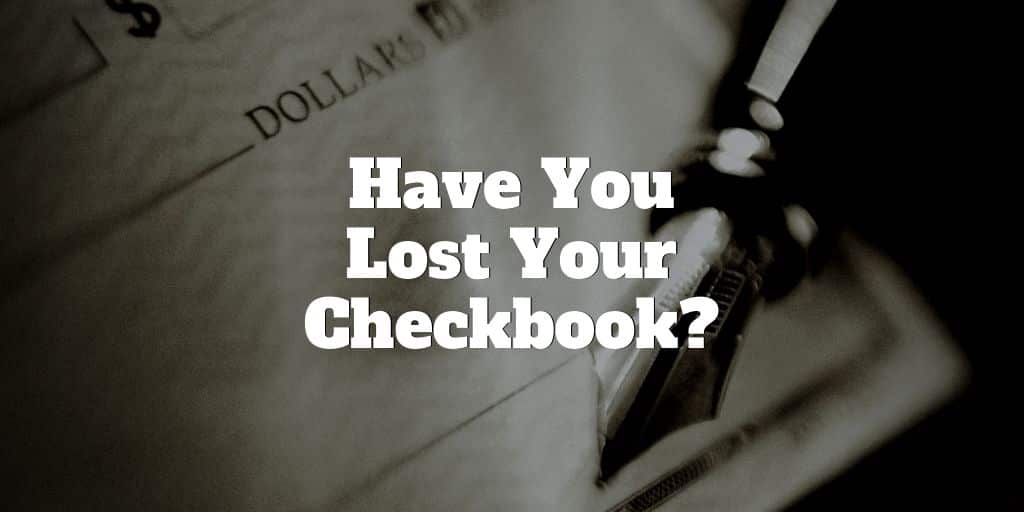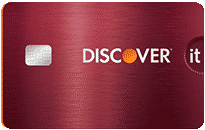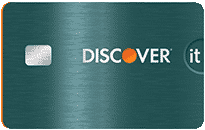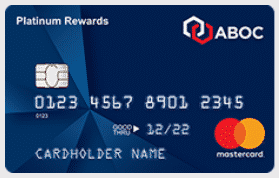
While checks are quite convenient, losing a checkbook can be one of the least pleasant financial experiences you will ever go through.
Here’s what you need to know about the steps and precautions you should take if you have lost your checkbook, as well as the case for using a different form of payment to keep yourself protected.
Stop Payment on All Checks
When you lose your checkbook, the first thing you’ll need to do is to instruct your bank to stop payment on all of your checks.
You can do this by calling your bank directly, though many banks have an online option for stopping checks. The fee to stop payment varies from bank to bank, but most will charge around $30.
Keep in mind that stopping payment means that legitimate checks you wrote before losing your checkbook may also be blocked, so it’s a good idea to check with the businesses you paid by cheque/check recently and arrange alternative payments for the ones that will be affected by your stop payment order.
Cancel Your Account and Set up a New One
Unfortunately, dealing with the loss of your checkbook isn’t as simple as just cancelling your checks.
Under the Uniform Commercial Code, the law that governs cancelled checking, your bank is only required to stop payment on your blocked checks for a period of six months.
Due to the administrative costs involved in keeping a stop order on checks, very few banks will go beyond this minimum requirement, meaning that you will have to pay for a new order every six months if you want to keep your current account.
Because of this, it’s almost always best to cancel your current bank account and set up a new one to permanently invalidate your lost checks.
Keep in mind that when you set up your new account, you’ll have to reconnect all of your existing payments to it.
This means updating your bank account information with your employer, setting up new automatic payments with utility and service providers and updating investment accounts that may be tied to your previous checking account.
Though it will be a hassle, going through this process is the only surefire way to make sure your old checks are never honored without paying a stop order fee twice a year on an indefinite basis.
If you've struggled with trading techniques in the past and watched your mistakes affect your bottom line, you're not alone-but you can change that starting now!
I'm trading expert Thomas Wood and my e-guide, "Naked Trading Mastery" could give you the edge you need to make earning consistently easier than ever!
Get your free copy here!
File a Police Report
If you believe that your checks have been stolen, it’s important that you file a report with your local police department.
The report will create a record of your missing checkbook that can help to protect you in case of identity theft later on.
If a criminal uses your checks to defraud a business, you may find yourself locked in a dispute with the merchant over the payment.
Having a police report on file will help you prove that you were not responsible. It’s also vital that you keep a copy of the police report in your personal records in case a dispute arises.
➤ Free Guide: 5 Ways To Automate Your Retirement
What Should You Do if Your Checks Are Cashed?
Even with all of these precautions, there’s still some chance of a check slipping through the cracks.
In one prominent case that made headlines a few years ago, for example, Wells Fargo bank was unable to stop payment on a stopped check because it had been received for processing before the customer put in the stop order.
While such instances are rare, it’s important that you know what to do if you find yourself dealing with one.
If you haven’t done so already, the very first thing you need to do if a lost check is cashed is to file a police report.
The fraudulent check constitutes identity theft, and it’s important to start the paper trail now so that you won’t be liable later on.
Next, you should immediately report the forged check to your bank.
Most banks have internal systems for dealing with forged checks, and a comparison of your signature to the one on the forgery should be enough to convince the bank that a crime has been committed.
More often than not, this will lead to the bank refunding your account.
While a lawyer may be necessary if things don’t go smoothly, you can usually begin this process without retaining an attorney.
Using Alternative Payment Methods to Avoid the Hassle
As you can see, losing your checkbook is a much bigger deal than most people imagine it to be.
To head off the sheer inconvenience of dealing with a lost checkbook, it may be a good idea to pay for goods and services with a credit or debit card.
Although these cards can certainly still get lost or stolen, they are much easier to cancel out than a checkbook, meaning that you’ll be able to regain control of your financial life without filing complex stop orders or having to set up entirely new bank accounts.
Rising interest rates...Skyrocketing inflation...Exploding debt...A looming recession...It's no wonder Americans are becoming more and more concerned about their savings and investments. That's why I wrote my newest report…This FREE REPORT shows YOU how you could protect your retirement savings before it's too late. Request your free report today and learn how you could protect everything you've worked for!
Request Your FREE Ben Stein Report Today!
How To Pick A Good Credit Card
Selecting a good credit card these days is easier than you might think. Not only do the big banks offer credit cards but even companies like Apple and Uber offer their own branded credit cards.
The first step is to figure out what your financial goals are by having a credit card. If you want to pay off debt faster, a 0% interest balance transfer card, like the one offered by Discover-It may be a good fit.
| DISCOVER IT® SPOTLIGHT | |
InvestorMint Rating 4 out of 5 stars |
via Discover secure site |

On the other hand, if you don’t already have high-interest credit card debt, but instead are looking to buy a high-ticket item and want a long time runway to make zero-interest payments then the Discover It ® – Cashback Match™ is best.
Got $0 Debt? Which Credit Card Is Best?
One of the best ways to pick a credit card if you’re not in debt is to spot your spending patterns and pick a credit card that rewards you most.
You can choose a top budgeting app like Tiller Money, Personal Capital, or Power Wallet to identify whether you spend more on say restaurants and travel or groceries and gas.
Once you’ve identified where the bulk of your monthly spend is going, you can pick a credit card that rewards you most in those categories.
Chase Sapphire Reserve, for example, is among the best credit cards for dining and travel. However it comes with a high annual fee.
If you want to avoid an annual charge, ABOC Platinum Rewards may be a better fit. It also has generous rewards on restaurants, gasoline purchases, travel, and groceries.
| ABOC PLATINUM REWARDS SPOTLIGHT | |
InvestorMint Rating 4 out of 5 stars |
via ABOC secure site |
Official tax return reveals how one trader nabbed annual gains of 228%, 309% and 339%. His tax return was released online, exposing this simple trading technique used to pocket nearly half a million in profits.
Click here to see the official tax return before it is deleted...
>> 7 Best High Limit Credit Cards
>> Can You Buy A House With A Credit Card?
>> What Is A Fair Credit Score?
Mr. Market is fickle and emotional... After ten years of going up in a nearly unbroken line, he abruptly decided to reverse course...
And usher in a bear market that has crushed portfolios — But while most investors were going through the worst year since the Global Financial Crisis...
A small group of 3,700 people had the chance to collect instant "bonus payouts" courtesy of Mr. Market every week.
All thanks to a method most investors have no idea about… watch this demo showing how it works.











Leave a Reply